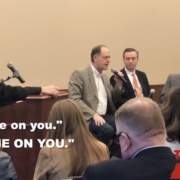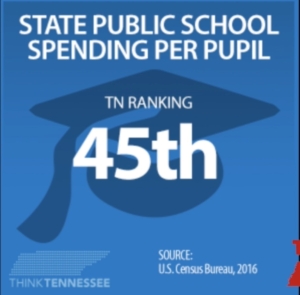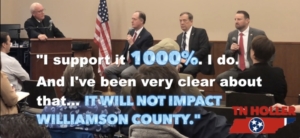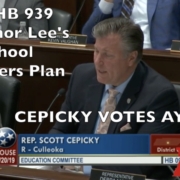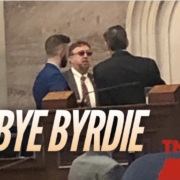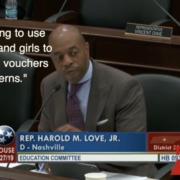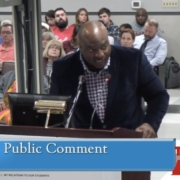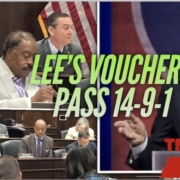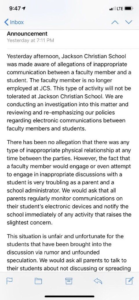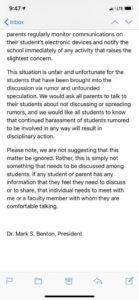Sen. Jack Johnson To Anti-Vouchers School Boards: “SHAME ON YOU!”
At a Williamson County “Legislative Update” Friday, Senator Jack Johnson took the microphone to offer a full-throated defense of Governor Bill Lee’s school vouchers program (aka “Education Savings Accounts”).
Supporters of the vouchers say they will help some kids in failing schools escape to a better education.
Opponents say we shouldn’t be steering public money away from already struggling public schools to do that, that it amounts to the privatization of education, and that the private schools in receipt of the money wouldn’t be subject to the same kind of accountability and would be able to discriminate against certain kids using public funds.
(Watch our highlights of the Education Committee debate HERE. The TEA says Vouchers have been a “disaster” where implemented and remains against them, as are a number of other organizations.)
Senator Johnson Brought up both pillars of Governor Lee’s education privatization platform – the statewide charter authorization board (which would be able to overrule local boards who decline to approve a charter), and vouchers.
Johnson accused school boards and other organizations of disseminating misinformation about the vouchers, and said while they care about public schools, he cares about the kid, offering harsh words for recent school boards (like his own in Williamson County) who have passed resolutions against charters:
“Do you understand the optics of that? We’re the wealthiest, whitest county in the state, and we’re saying we don’t want to do something to help inner-city kids who are poor and predominantly minorities. Shame on you. SHAME ON YOU.”
Watch the VIDEO:
Johnson, the Senate Majority Leader, also brought up the Governor’s friendship with Jeb Bush and used Florida as evidence of the success of vouchers and charter schools:
“Jeb Bush was elected in 1998 and he ran on a platform of education reform, including education choice (vouchers) and expansion of charter schools. The state of Florida went from 40th in the nation for 4th grade reading among poor and minority students to 1st. 40th to 1st. You cannot argue with the results, they work.”
“Florida has become Exhibit A of both counts: profiteering and interest group politics. Under the uncritical eyes of an indulgent Legislature, for-profit education companies now manage nearly half of the state’s 650 publicly financed charter schools and enroll more than 130,000 students, but with woefully insufficient controls on what they spend and to whom they pay it. Like the private prison industry and other banqueters at the public trough, they’re investing heavily in lobbying — $5.3 million in just over 10 years — and in political expenditures.”
“During a charter school visit last month, Gov. DeSantis said he wanted to do something about “bad actors” in the industry, but he has yet to say what that would be. However “bad actors” might be defined, the root of the problem is larger. It’s the very existence of the for-profit sector. Charter schools should be non-profit in all respects, not just on paper.”
“What the charter/voucher proponents (in Tennessee) may be referring to with their claim of Florida being #1 in reading is the most recent round of NAEP scores that found the state was one of few to make significant gains in reading scores. But that can in no way be attributed to vouchers and charters. The jump likely has multiple causes. Florida 4th graders out-perform the national average on the NAEP reading exam but 8th graders are about average. The boost on the NAEP for 4th graders could be attributed to the state law that requires retaining 3rd graders who flunk state reading tests, which could artificially inflate the 4th grade NAEP reading scores.”

